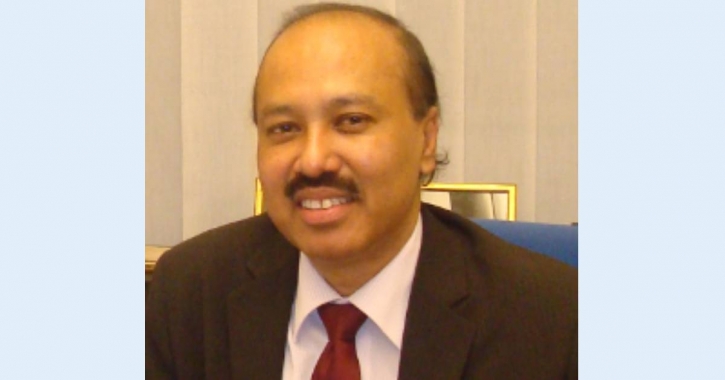‘Bureaucratic bottlenecks, poor services bar diaspora from investing in Bangladesh’
Md Owasim Uddin Bhuyan || BusinessInsider

Netherlands-based Bangladeshi diaspora organisation BASUG International Chairman Bikash Chowdhury Barua
Bangladesh needs to improve its services and remove ‘bureaucratic’ barriers that discourage foreign investors to overcome challenges during the Covid-19 period, according to Bangladeshi diaspora based in Europe.
Netherlands-based Bangladeshi diaspora organisation BASUG International Chairman Bikash Chowdhury Barua said there were complaints about poor services at the Bangladesh Bank, the Commerce Ministry, and the National Board of Revenue.
“The government should set short, mid, and long-term goals to attract more foreign investment and try to go beyond the apparel sector and also at the same time adopt new technologies and look for regional collaborative investments,” he said.
In an interview with the Business Insider Bangladesh, the Bangladeshi diaspora leader said that the post-pandemic period will witness a different situation. Many workers will face economic hardship and loss of socio-professional identities (they are already experiencing the crisis).
Hundreds of thousands of migrant workers have returned home since January 2020 and there is no sign that they would be able to return to their jobs or to get similar jobs that they had before the pandemic.
Soon after the outbreak of the pandemic, Barua said, many countries were planning to reduce their dependence on China for their products and move to other countries. “Japan wants to relocate its factories from China. Countries like Vietnam and India are already trying to reach out to those countries that are looking for new locations. Bangladesh should cash in this opportunity.”
Barua, also a global migration expert, said that migrants across the world were the most affected group during Covid 19 and they were not on the priority list of getting medical support during the pandemic even though many of them were the ‘front line workers’ and ‘vulnerable’ to coronavirus.
“Shutting down of the economies, closure of borders, and fear of the invisible enemy is leading to the hardening of migration policies around the world and raises new health securitization migration rhetoric. This new migration rhetoric will have longer-term implications in the field of socio-economic inclusion and social cohesion in societies receiving immigrants which in the end create more discrimination and xenophobia.”
He said that “one of the major backbones of Bangladesh economy is ‘remittance’. Unfortunately, the policies of the government are not yet ‘migrant-friendly, although the government loves to call the migrants the ‘golden sons’ of Bangladesh. Bangladesh missions abroad need to be migrants-friendly and provide necessary support including legal and counselling the migrants to need.”
He said that the Bangladesh missions abroad should maintain data of the migrants and look after the welfare of the migrants. “There are reports of receiving no support when the migrants approach the Bangladesh missions for information or support. This should be stopped once for all.”
About manpower recruitment improvement, he said that “We know about the steps taken by the Malaysian government stopping the G2G plus process and initiating an investigation of corruption into it a couple of years back. This does not give a good image of Bangladesh being a migrants-sending country. There should be more transparency and monitoring of the whole recruiting process at both ends. We saw in the recent past the arrest of a Bangladeshi businessman who was charged with corruption in the manpower recruitment process and bribing foreign officials. This sort of incident gives a negative image of the country.”
He said that the government should ensure a fair recruitment process so that neither the migrants nor the image of the country is affected. The potential migrants suffer in the hands of the middlemen and are forced to pay three to four times higher prices than the price fixed by the government. This should be stopped. The recruiting agencies once found guilty should be closed down, to set an example so that other agencies do not dare to follow a similar path.
Asked about controlling human trafficking, the migration expert said that according to a report, an estimated 40 million people are victims of modern-day slavery and human trafficking across the globe which include domestic service, forced labor. child labor, sex trades, etc. Bangladesh is not excluded from this human trafficking. It includes men, women, and children of all ages, races, nationalities, or genders.
“According to the same report, each year, traffickers earn approximately $39 billion on the exploitation of children alone. As of 2017, it’s estimated that 40 million people were enslaved across the world. On the other hand, 71% of modern slavery victims are women and girls. This is a very alarming situation. In most cases, victims cannot or don’t speak out on their ordeals. In many cases, victims have been saved from human trafficking simply because someone spoke up. “
To stop trafficking and raise awareness of the issue on a local level, Barua said that regional, and national levels should be the first step. Social media can be used to highlight issues, stories. An effective anti-trafficking legislation campaign needs to be adopted which if implemented, will make human trafficking difficult for the traffickers.
“Border patrol agents can be introduced and where it is already in use, need to be strengthened. Human traffickers are now using advancing technology to streamline their operations. Cybersecurity professionals can be engaged to follow along with finding the traffickers and dismantling their plans.”
























